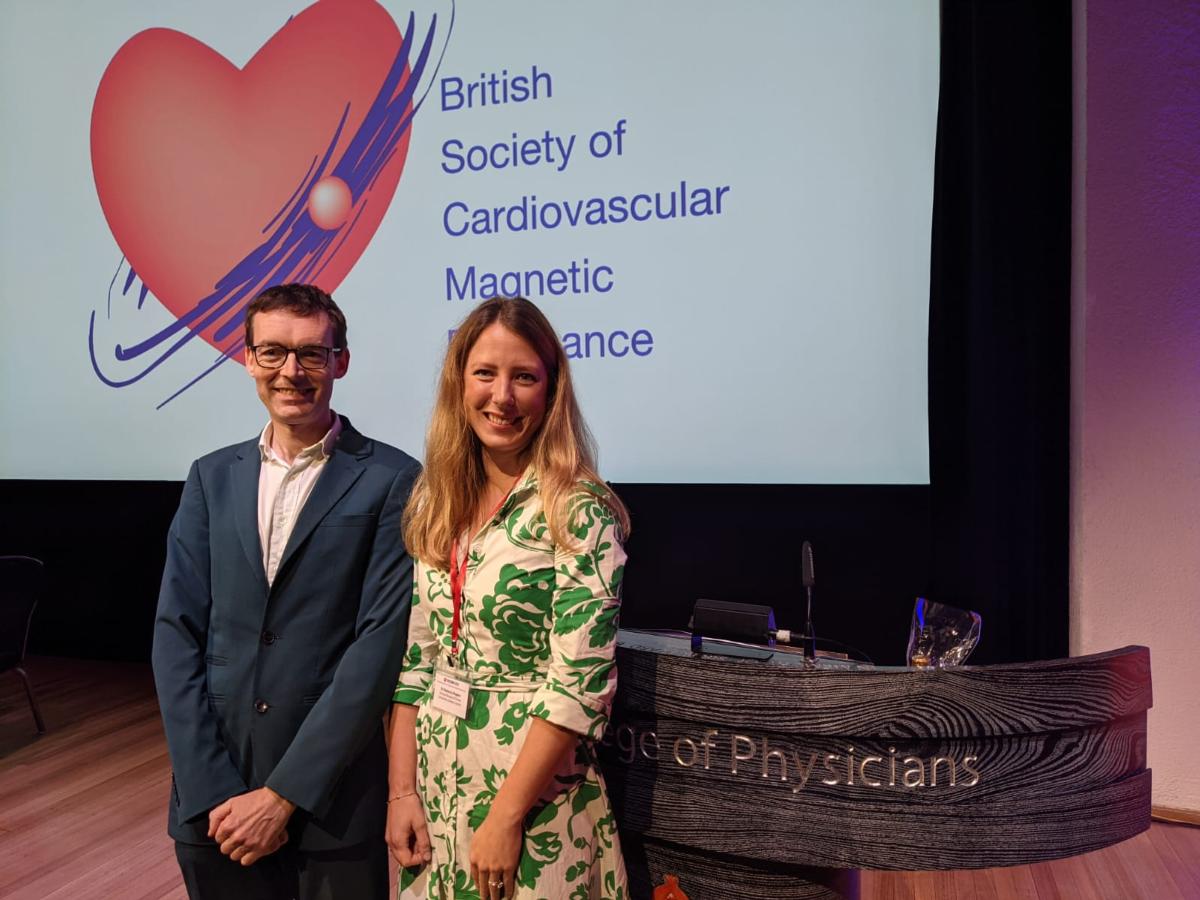Heart Centre researcher wins prestigious award

Congratulations to British Heart Foundation researcher Dr Rebecca Hughes, who won the British Society of Cardiovascular Magnetic Resonance (BSCMR) Annual Young Investigator Award last week.
The award was presented to Dr Hughes for discovering that 100 percent of patients studied with apical hypertrophic cardiomyopathy have impaired blood flow within the small arteries that run through the heart muscle at the tip of the heart (the apex).
In Dr Hughes’ research the use of the novel ‘perfusion mapping’ technique, developed by Barts Health and the National Institutes for Health, allows defects in blood flow through the heart muscle to be visualised and automatically quantified.
Hypertrophic cardiomyopathy is a common form of heart muscle disease caused by faults (mutations) in the DNA. It causes the heart muscle wall to thicken abnormally, and those with the disease are at risk of dying suddenly from dangerous heart rhythms.
When thickening mostly affects the tip of the heart, it is termed apical hypertrophic cardiomyopathy.
This accounts for 10 percent of hypertrophic cardiomyopathy cases but has many differences from more observed forms of the disease in terms of risk, identifiable gene mutations and ethnic variation.
BSCMR is the national representative body in the UK for CMR and promotes the clinical use and practice of highly-quality and cutting edge CMR.
They encourage young researchers working on all aspects of CMR research to submit their work for their Young Investigators’ Award.
A cardiovascular magnetic resonance (CMR) scan uses a strong magnetic field to create detailed images of a patient’s heart and provides information on the structure and function of the heart.
Clinical research fellow Dr Rebecca Hughes said: "In research, it is very rare for a new finding to be 100% prevalent.
"And when you do it strongly suggests that you are looking at a crucial underpinning disease mechanism.
“This new insight has the potential to change how we understand the development of the disease, how we diagnose it, and suggests avenues to explore for targeted treatment options in future.
“It is a privilege to be part of the CMR research team at Barts Heart Centre under the supervision of Professor James Moon, and I am delighted to have won such a prestigious award."
Read more
